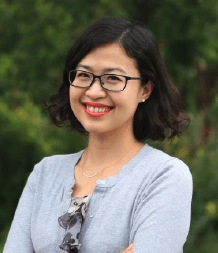Author Jennifer M McGivney
The reason why most people join the Osher Lifelong Learning Institute at UMass Boston is simple: It looks like fun. What many members get out of it, however, is more substantial: a boost to mental health and well-being.
Congratulations to the students who earned honors for their contributions to the field of gerontology, to the community, and to the university.
What career opportunities await gerontology students? Nicholas Lance Bradley and Janelle Fassi, both gerontology PhD students at UMass Boston, spread awareness of the opportunities available in the field of gerontology.
On May 1, 2025, a new set of The Healthy Aging Data Reports will be released by a team at the Gerontology Institute. They present a detailed picture of aging in America that’s provided nowhere else: a neighborhood-level examination of the challenges faced by older adults.
Demographic changes are affecting the future of higher ed: Older adults seek to enhance their lives by furthering or restarting their education. Yet, challenges remain in making these opportunities available.
The WISH Act is a case study in collaboration, compromise, and negotiation. Learn about the people and organizations who created a pragmatic proposal for long-term care insurance for older adults with disabilities.
How do living arrangements affect the cognitive health of Asian American and Latin American older adults? Is there a relationship between the cognitive aging of older adults and whether they live alone or with others? These questions are at the heart of the research pursued by Qian Song, PhD, an assistant professor and the undergraduate program director of the Gerontology Department at University Massachusetts Boston.
Harry Margolis, a fellow with the Gerontology Institute, hosts the podcast, Risking Old Age in America. His conversations with lawmakers, scholars, housing experts, and more reveal not just the immensity of the emerging care crisis but the ingenuity of those who work to alleviate it.
The Center for Social and Demographic Research on Aging leads engaged research in neighborhoods around the city to learn the needs of older adults. The findings from these conversations guide the city’s Age Strong campaign. “This research allows the City of Boston to implement programs that are closely aligned with what residents need and look for,” says Caitlin Coyle, PhD, CSDRA director.
The Innovations in Aging Forum invited special guests from the Gerontological Society of America to learn about the work being done by the Gerontology Department and the Gerontology Institute, as well as their partners.










